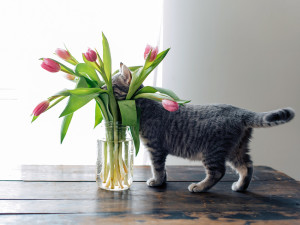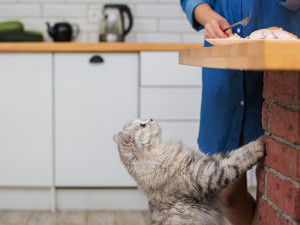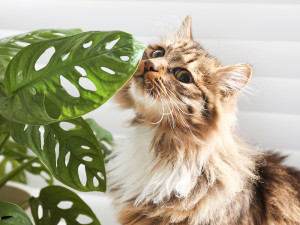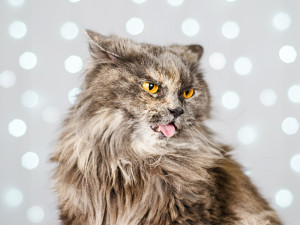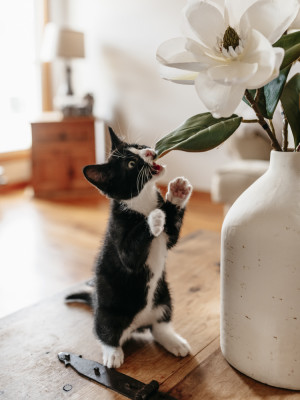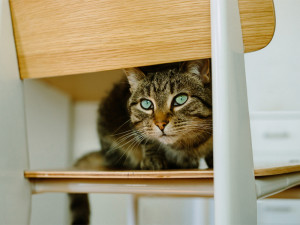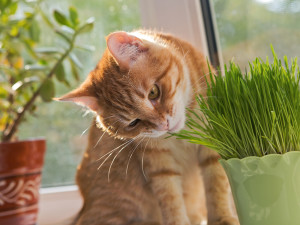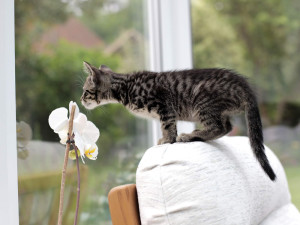Are Daisies Toxic to My Cat?
They’re cute in the garden, not so much for your cat. Here’s why.

Share Article
It’s summertime, and everything is blooming and gorgeous. It might be the right time to bring some nature indoors in the form of flowers or give your cat a bit of outdoor time. But before you do, it’s important to know what kinds of plants might be toxic for your cat.
Daisies (Bellis perennis) are a common flower to receive as a gift or already might be growing in your backyard. While daisies might be one of the cutest flowers, they are unfortunately toxic to cats. While the white petals and the yellow center of the daisy in the Chrysanthemum genus is the most toxic for a cat, all parts of the flower can be dangerous.
If your cat digests a part of a daisy (even those of a different variety than the common white daisy), monitor them for any signs of poisoning, including drooling or vomiting. Dr. Barbara, veterinarian at NHV Natural Petopens in new tab, some tips on how to keep your cat safe from this flower.
Are daisies dangerous for cats?
According to Dr. Barbara, common daisies are poisonous for cats. “The common daisies—the ones with white petals and yellow centers are toxic to cats. They have compounds that can damage their nervous systems,” she says. However, there are other types of daisies than just the ones you might see in your backyard. She mentions that some species of daisies are non-toxic for cats, but a pet parent should still err on the side of caution, because many daisies look similar enough that it can be hard to distinguish which is which.

What should I do if my cat eats a daisy?
If you spot your cat getting close to eating a daisy, take the flower from their mouth, and gently rinse out their mouth with a damp cloth to remove any remaining plant from their mouth.
However, if your cat does eat and digest a daisy, Dr. Barbara has specific advice. “Should they manage to successfully eat and swallow some, closely monitor them for signs of poisoning like vomiting and diarrhea. If they become lethargic, have trouble walking, or experience difficulty breathing, reach out to your vet ASAP.”
Diagnosing plant poisoning in cats
If you think your cat ate any part of a daisy, you should call your vet or a pet-poison-control hotline immediately. They will tell you what symptoms to look out for in order to diagnose your kitty with plant poisoning.
Symptoms of plant poisoning in cats
Dr. Barbara says to keep a look out for the following symptoms: skin irritation, lethargy, trouble standing or walking, belabored breathing, or drooling. The gastrointestinal symptoms include vomiting and diarrhea. She also notes poisoning symptoms may also depend on the plant and the severity of the reaction.
Treatment
As always, you should always contact your veterinarian if your cat has ingested something foreign. Treatment involves reducing the amount of toxins absorbed by a cat, delaying the absorption rate, or speeding up the elimination of the toxins. Dr. Barbara says that treatment can vary depending on the timing of the treatment: “Your veterinarian may give your cat activated charcoal to help absorb any toxins that remain in the gut. Medication to protect the damaged areas of the stomach may also be used.”
It’s also possible that the vet might try to induce vomiting in your pet. “In extreme cases, they may choose to perform a gastric lavage, which is the removal of matter directly from the stomach through a tube (more commonly known as a ‘stomach pump’). Only induce vomiting under the supervision of a veterinarian. It is not safe to induce vomiting at home in a cat, so seek veterinary care immediately if your pet cat ingests it,” Dr. Barbara says.
Are all parts of a daisy poisonous for cats?
The most toxic parts are the pollen and the petals, but cat parents should treat a daisy as toxic as a whole for their pet.
How do I stop my cat from eating daisies?
Make sure that daisies or any other toxic plants aren’t in your home or yard. And if your cat goes outside, be sure to monitor them when they’re outside. For cats that are plant- obsessed, getting cat grass or catnip is a good way to redirect their grazing.
Bottom line: Are daisies poisonous for my cat?
Yes, as we’ve reiterated above, daisies are poisonous to cats.
Other plants that are safe for cats
Dr. Barbara above suggests cat grass or catnip for felines that love plants. She also suggests asking for advice. “You can also ask your primary veterinarian if valerian, which is a pungent plant that draws cats in, similar to catnip, can be given to your cat. For cats that are not affected by catnip, cat thyme can offer a similarly stimulating effect,” she adds.
Other plants that are dangerous for cats
Other plants and flowers like daffodils, lilies, English ivy, tulips, and jade plants are also toxic for cats. Dr. Barbara suggests that introducing any new plant into a cat household should be well researched.
“Be sure to do your research and consult an expert source before introducing any new plant around cats, as some plants can be dangerous even in small quantities. However, amongst cat-safe plants, your fur-kiddo can still enjoy the sights and smells of nature without fear,” she says.
References:

Kerensa Cadenas
Kerensa Cadenas is a writer based in New York City. She’s previously worked at The Cut, Thrillist, Cosmopolitan, and Complex. Her work has been featured in Vulture, GQ, Vanity Fair, and others.
Related articles
![grey and white cat with tongue sticking out]()
Why Does My Cat Keep Throwing Up?
Here’s when you should worry.
![Extremely blissed out cats on a psychedelic background]()
What Does Catnip Do to Cats?
They’re so high right meow.
How to Stop Your Cat From Munching On All of Your Precious Plants
Tips to get your cat to quit eating your greens.
![Cat sitting on a kitchen chair, looking at the camera]()
How to Cat-Proof Your House
Ten steps for keeping your cat out of trouble.
![Cat sitting on a window sill eating cat grass]()
Sweet Greens: The Best Cat Grass Grow Kits
Not to be confused with catnip (or other buds).
![Half-bengal kitten indoors smelling white orchid flowers in a conservatory.]()
Are Orchids Toxic to Cats?
Find out whether you can get that elaborate flower arrangement—or if you should skip it.

